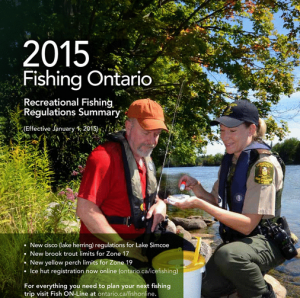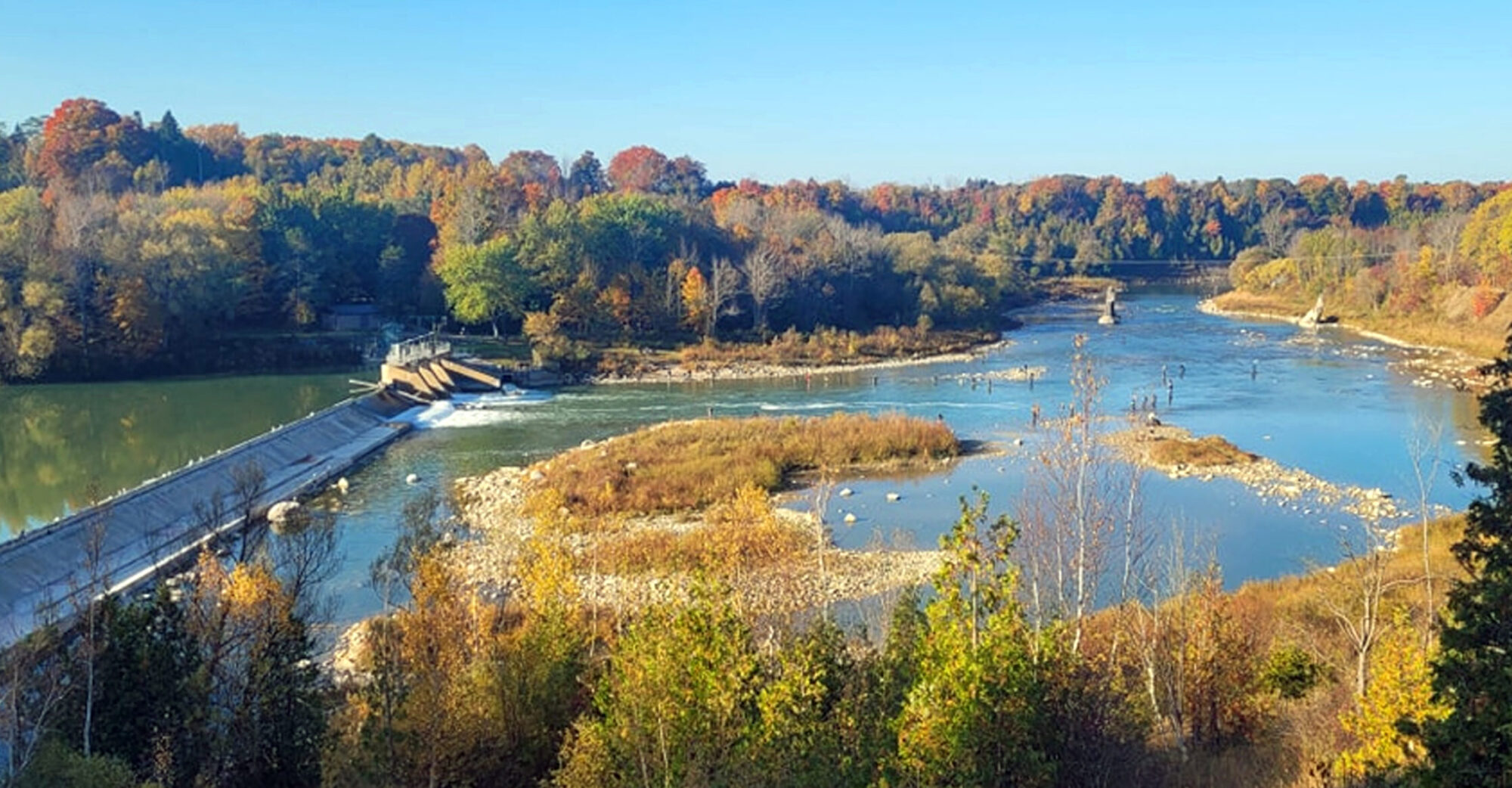If you are an avid angler or a member of a local conservation group, it is time to put your thinking cap on.
While it often seems like the government agencies responsible for protecting, providing and enhancing fisheries are being slashed in budget, there is some light on the horizon for those interested in opportunities for the enhancement of recreational sport fisheries. The federal government has announced the availability of $10 million towards conservation projects across the country in support of recreational fisheries. Here is the opportunity to offset at least some of the cutbacks to MNR staff, programs and budgets that are constantly on the chopping block. This is a major positive contribution after the downsizing of the Department of Fisheries and Oceans and some negative changes to official Acts. The best part is, this involves those who have the greatest vested interest in recreational fisheries — the volunteer clubs on a local level.
If you haven’t yet come across the news of this funding, let me provide you with some background information that may answer some questions and help you understand why this is so important. First off, the funding is from the federal government, filtered down through Fisheries and Oceans Canada. The funding was officially announced on June 17, with the official press release stressing the importance of recreational fisheries and the work of conservation groups on a local level.
Over the next two years, $10 million will be allocated to partnership projects that enhance recreational fisheries through habitat/conservation projects. Recent legislative amendments to the Fisheries Act have provided the opportunity for Fisheries and Oceans to enter into agreements with third parties through what is now called the Recreational Fisheries Conservation Partnerships Program.
Projects are required to “enhance recreational fisheries through conservation works”. Projects such as “dam removal, fishway construction, and shoreline/stream rehabilitation work” are valid through the framework of the program. The whole program focuses on the restoration or rehabilitation of recreational fisheries habitat. The funding does not cover fish stocking, hatcheries, commercial fisheries, or educational programs. Local conservation or angling groups can work alone or partner up to apply for funding.
The federal government has acknowledged the importance of local involvement and local knowledge of sport fisheries to be a key component in carrying out successful localized fisheries projects.
Funding for individual projects is capped at $250,000. The funding is allocated over two years with $4 million available in the first portion (2013-2014) and $6 million during the second year (2014-2015) of the program. The deadline for the first round of applications is July 12, 2013. This may seem like a short notice, but the program was announced in June and local clubs have had the opportunity to begin applications (which are accessible online) for some time. Another round of funding will become available with a deadline later in the year. An integral part of the outline for the funding is the encouragement of partnerships in carrying out the projects, which allows local clubs to work with other organizations and groups.
The local benefits that are possible with such funding are quite interesting. Recreational fishing provides over $8 billion to our Canadian economy. In Grey-Bruce we live in a region that supports a viable recreational fishery, a fishery that has been at the centre of attention with recent controversy over the SON Commercial Fishing Agreement. Here we have the federal government recognizing the importance of angling and we should take note.
Local MP Larry Miller, an active member of the Conservative hunting and angling caucus, was instrumental in seeing this funding come to life through the group. Miller issued his own press release stating “he was pleased the government made these funds available for local sportsmen’s associations” and that “partnerships will go a long way in ensuring the restoration and conservation of our local recreational fisheries”. Miller has been an advocate of local angling groups in our area for a very long time. When an issue arises or support is needed concerning our sport fisheries, Miller has never turned away from championing the efforts of clubs. In my opinion, it is too bad some others in local power positions do not see the importance of these efforts by local individuals, or the importance of a healthy, local sport fishery. This isn’t a personal political opinion either; Conservative, Liberal, NDP, Green, if you stand up for the efforts of those who conserve, protect and promote my most cherished past time and make angling a priority, then you get my support. It is those people that “we” put in office who should be concerned about what we care about. I know I would like to see more anglers, more hunters, more conservation minded individuals holding office on my behalf.
Now you may start to question what could be done to help our local recreational fisheries? You do not need to look too far to see the important project achievements by conservation/sportsmen’s groups around our region. The Sydenham Sportsmen, Lake Huron Fishing Club, The Bruce Peninsula Sportsmen, the Ontario Steelheaders, the Georgian Triangle Angling Association, The Grey-Bruce Bass Club, the Barrow Bay and District Sportfishing Association and a number of other groups have undertaken numerous works that benefit local fisheries. I am sure each of these groups, as well as a number of others, have a long list of projects they would like to see carried out. Here is the chance for these groups to come across the funds and partner up with other groups to carry out some pretty spectacular projects.
Fishway enhancements would be an excellent option for a number of local rivers. Stream rehab on large stretches of local watersheds would be available through this project. Spawning site rehabilitation for not only trout and salmon, but warmwater species such as bass, walleye, and musky, have all now become more viable goals for those who are interested in enhancing those fisheries. The notion of “dam removal” was listed in the official documents released in conjunction with the RFCPP program and could do wonders on the Saugeen watershed where over 50 man-made dams still pose risks to the migration of a number of recreational fish species.
News of increased funding for local recreational fisheries put a smile on my face. I know a lot of local anglers in Grey-Bruce will benefit from the projects that I am sure will be undertaken in the near future. What better way to spark a greater interest in local sportsmen’s clubs than this news? I am sure they could all use some extra support through an increase in membership and individuals who can lend a helping hand. You may not even be interested in our local fishery, but a healthy and vibrant recreational fishery puts money in the pockets our local businesses and municipalities and has a greater impact on our communities than you may think. Fisherman or not, there’s definitely no reason to get upset over some money from the government!
This article was published in the Owen Sound Sun Times. Read the full article.



